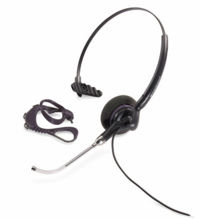Difference between revisions of "Headsets"
The Wiki of Unify contains information on clients and devices, communications systems and unified communications. - Unify GmbH & Co. KG is a Trademark Licensee of Siemens AG.
(→DECT Headsets) |
(→DECT Headsets) |
||
| Line 38: | Line 38: | ||
Following DECT headsets are supported by | Following DECT headsets are supported by | ||
* OpenStage SIP phones starting with SW version V1R5 | * OpenStage SIP phones starting with SW version V1R5 | ||
| − | * OpenStage HFA phones : starting with V1 R3.24.0 | + | * OpenStage HFA phones : starting with SW version V1 R3.24.0 |
* OpenStage TDM | * OpenStage TDM | ||
| − | ** OpenStage 60, 80 TDM : starting with V1 R3.18.0 | + | ** OpenStage 60, 80 TDM : starting with SW version V1 R3.18.0 |
| − | ** OpenStage 40 TDM: starting with V1 R0.21.0 | + | ** OpenStage 40 TDM: starting with SW version V1 R0.21.0 |
Revision as of 09:58, 12 August 2009
Please be informed that there are different categories of headsets: Corded, cordless (DECT or Bluetooth base station connects via cable to the phone) and "pure" Bluetooth devices. The best audio quality is provided when using corded headsets. Headset audio quality may be suffering when using other interfaces like DECT & Bluetooth.
Corded headsets are typically equipped with a 4-pin western plug. Cordless headsets, if they support the electronic hook switch functionality, do have an 8-pin western plug (to transport the signalling). The OpenStage socket supports both western plugs without any adapter, since the socket is hardware coded so that the 4-pin western plug does not rock around. This hardware coding also prevents, that someone plugs in a standard RJ45. Meaning, the headset 8-pin western plug is not a standard RJ45 (which could be a PoE powerd LAN cable).
Answering a call is simply done via the headset key. Neither an amplifier nor headset lifter are needed.
The following headsets are recommended for use as an accessory with OpenStage 40, OpenStage 60 and OpenStage 80 phones.
More information on how to use Bluetooth see OpenStage Bluetooth.
How to use Bluetooth headsets with OpenStage phones see ![]() User Manual OpenStage 60-80 HFA HP3000-HP5000 on page 167.
User Manual OpenStage 60-80 HFA HP3000-HP5000 on page 167.
Contents
Corded Headsets
Jabra by GN Netcom
- GN Netcom profile monaural
- GN Netcom profile binaural
Plantronics
- Plantronics Encore (H91, H91N, H101, H101N)
- Plantronics Encore for USA (P91, P91N, P101, P101N)
- Plantronics Supra (H51, H51N, H61, H61N)
- Plantronics Duoset (H141, H141N)
- Plantronics Tristar (H81)
- Plantronics SupraPlus Wideband (HW251N, HW261N)
- Plantronics Encore Pro (HW291N)
- Plantronics Encore Pro (HW301N)
- Plantronics Entera (Monaural NC)
- Plantronics Entera (Binaural NC)
DECT Headsets
Following DECT headsets are supported by
- OpenStage SIP phones starting with SW version V1R5
- OpenStage HFA phones : starting with SW version V1 R3.24.0
- OpenStage TDM
- OpenStage 60, 80 TDM : starting with SW version V1 R3.18.0
- OpenStage 40 TDM: starting with SW version V1 R0.21.0
Jabra by GN Netcom
- GN 9350 NC
- GN 9350e
Plantronics
- SAVI Office WO100
- SAVI Office WO200
Bluetooth headsets
Please be aware that dependant from the headset manufacturer, the headsets may have varying switching times. The OpenStage Bluetooth interface supports the Headset Profile only and no Hands Free Profile. Additional headset specific features may not be supported. The Bluetooth headset audio quality may be impaired by other Bluetooth devices in vicinity.
Jabra by GN Netcom
- BT8010
- BT8040
- JX10
- M5390
- BT530 [*1]
[*1] after Switch ON the Headset, the reconnect must be initiated via the menue on the OpenStage phone
Plantronics
- Discovery 925
- Discovery 665





